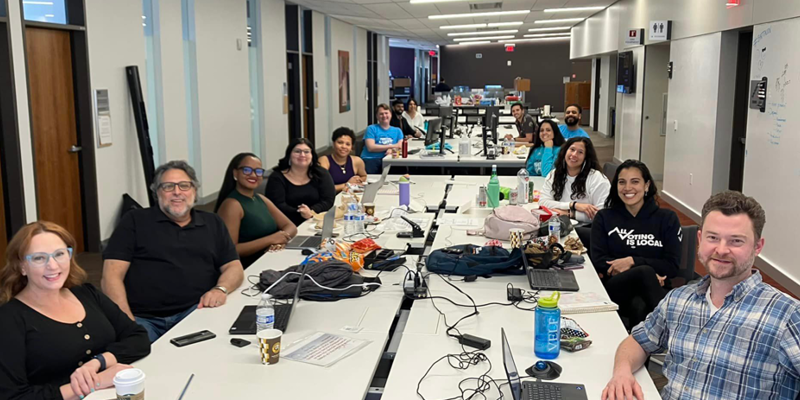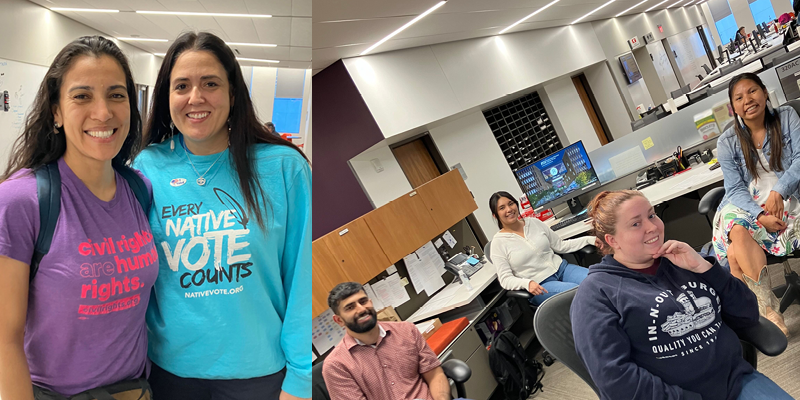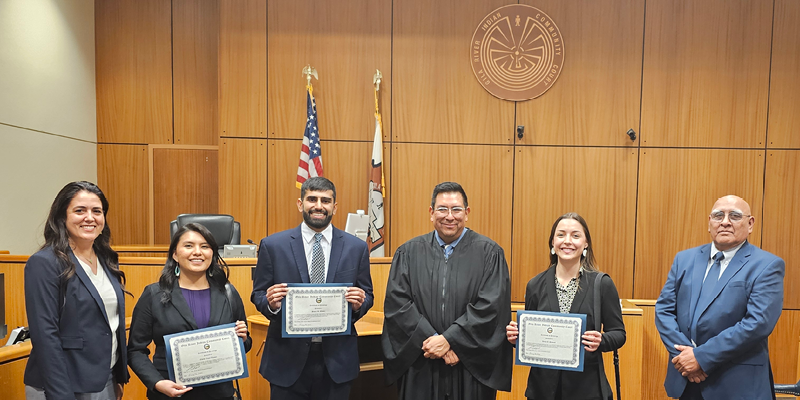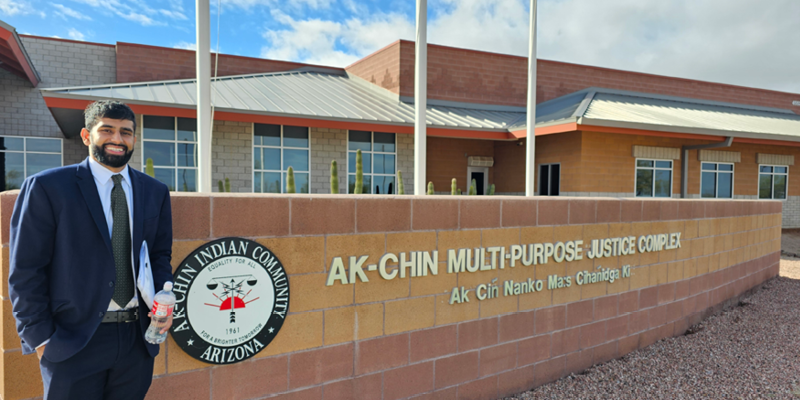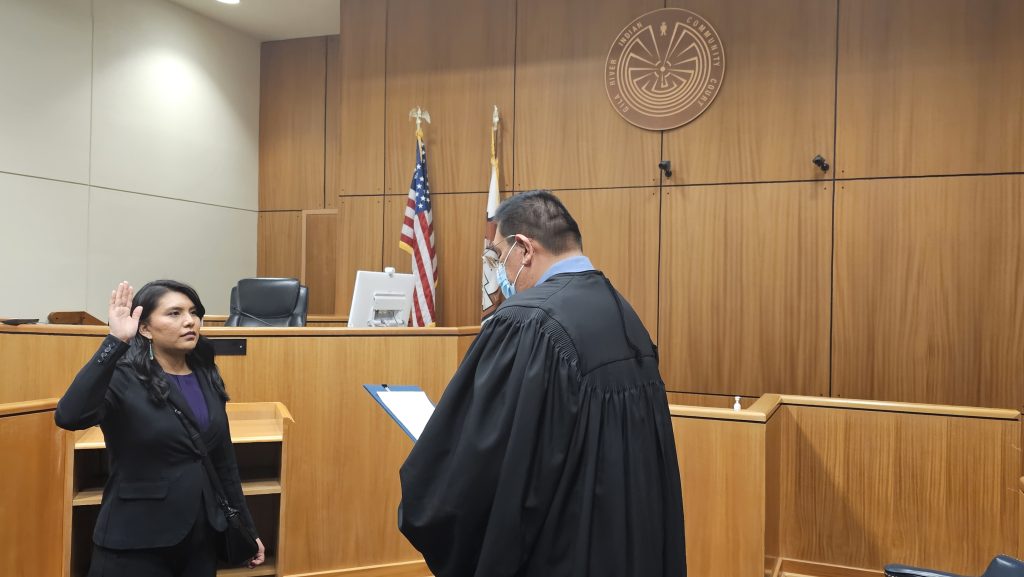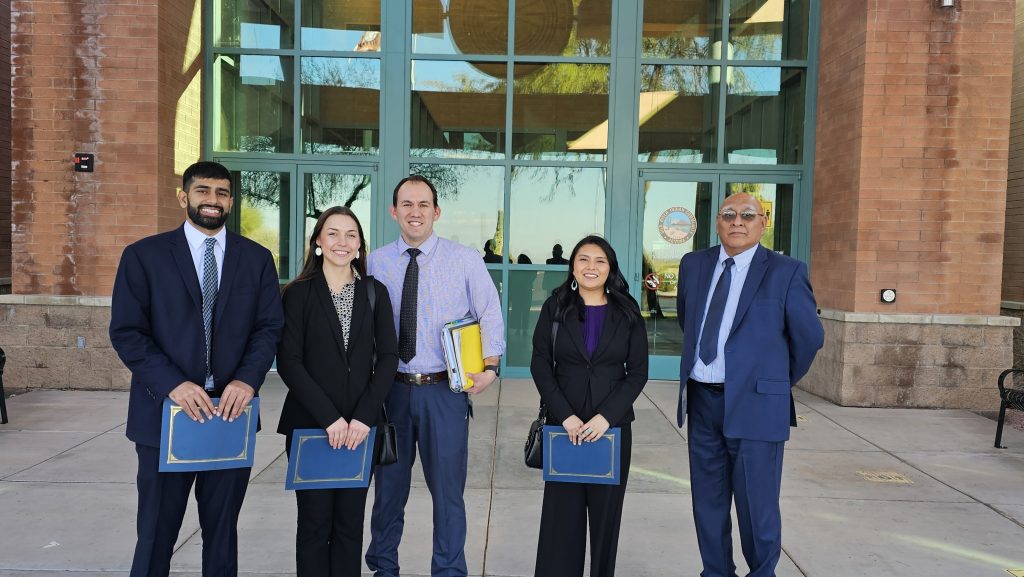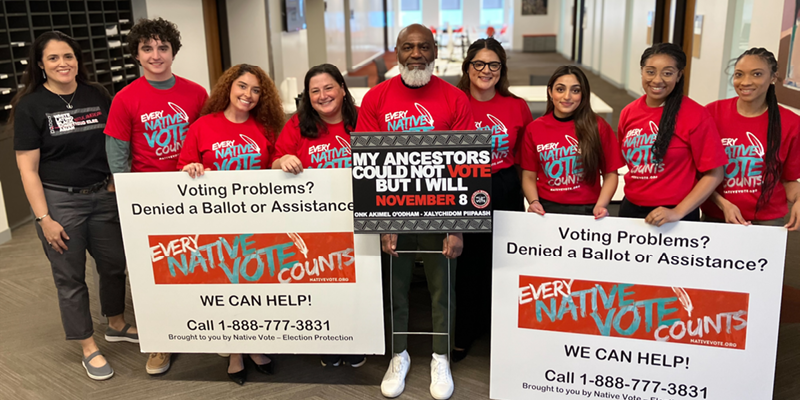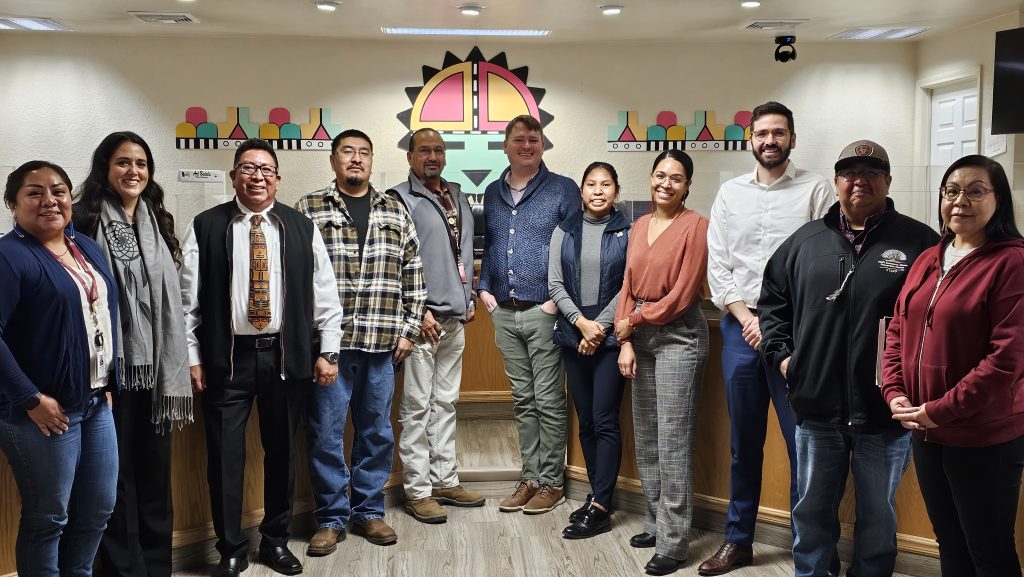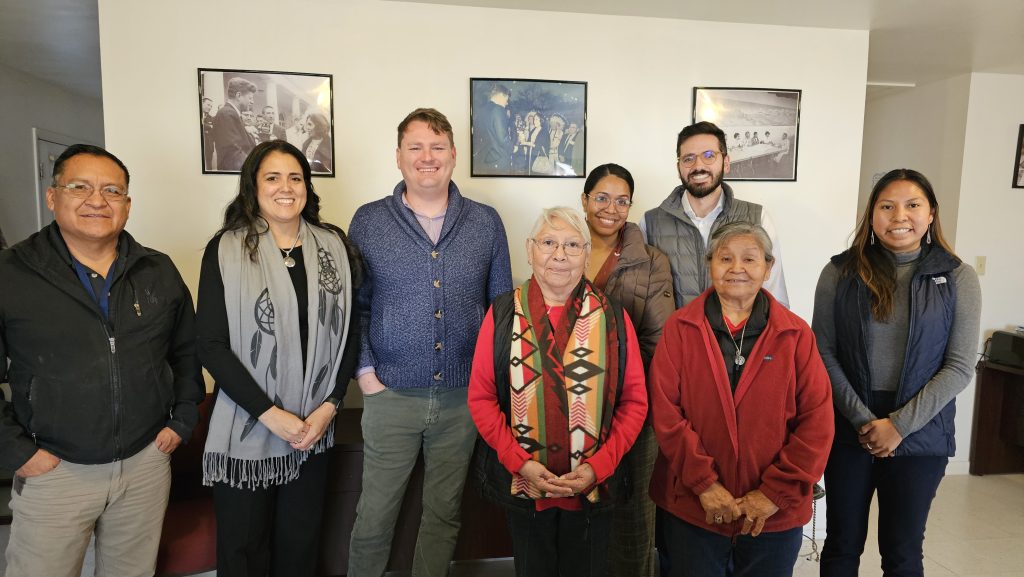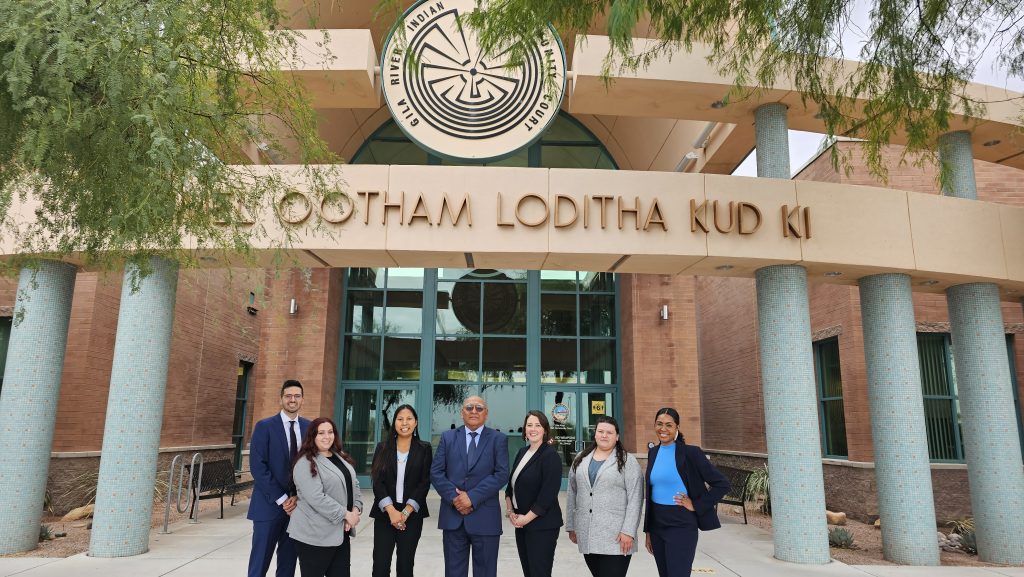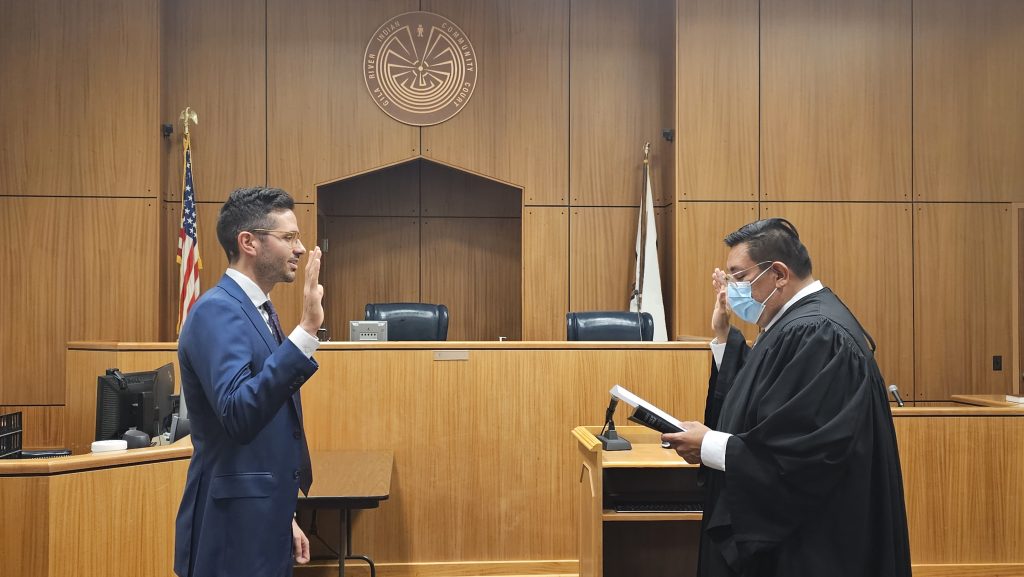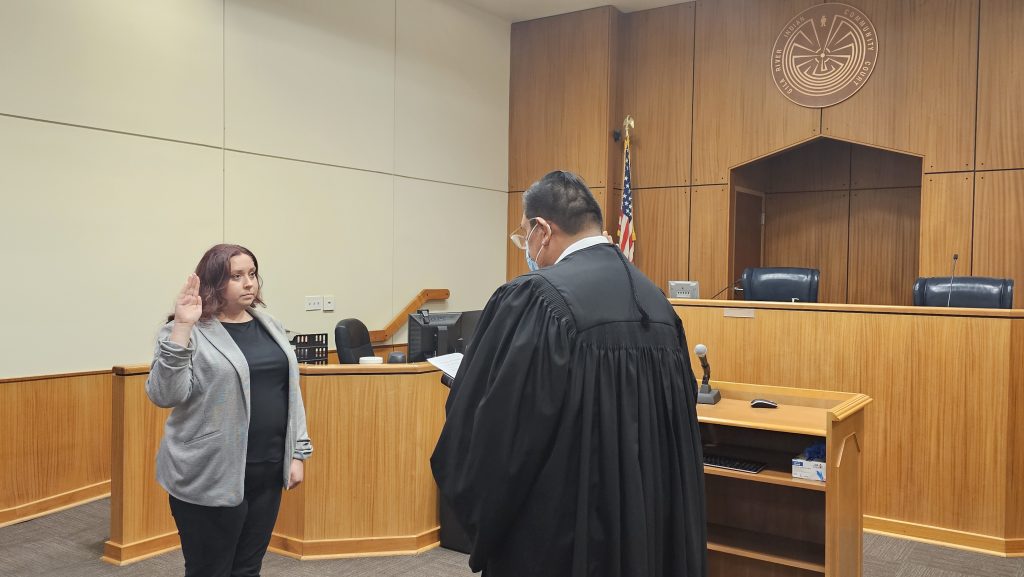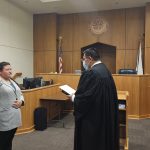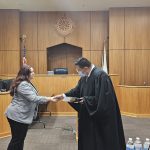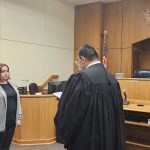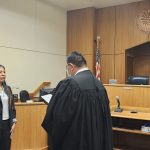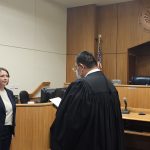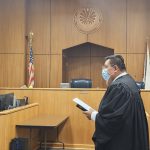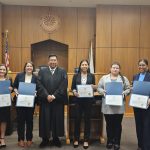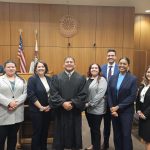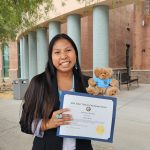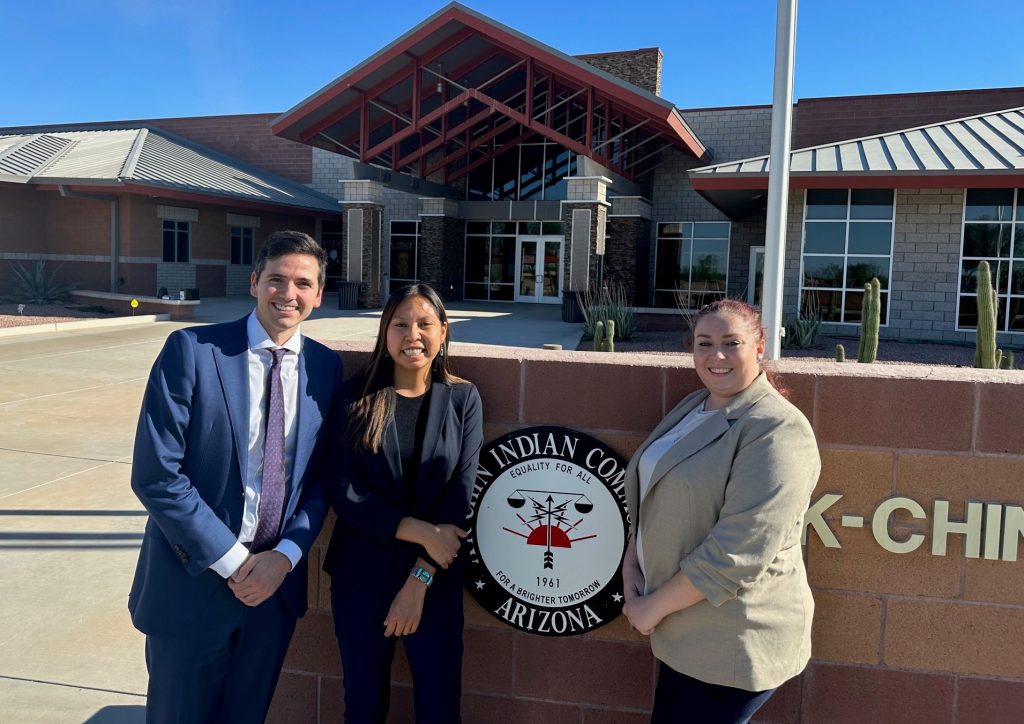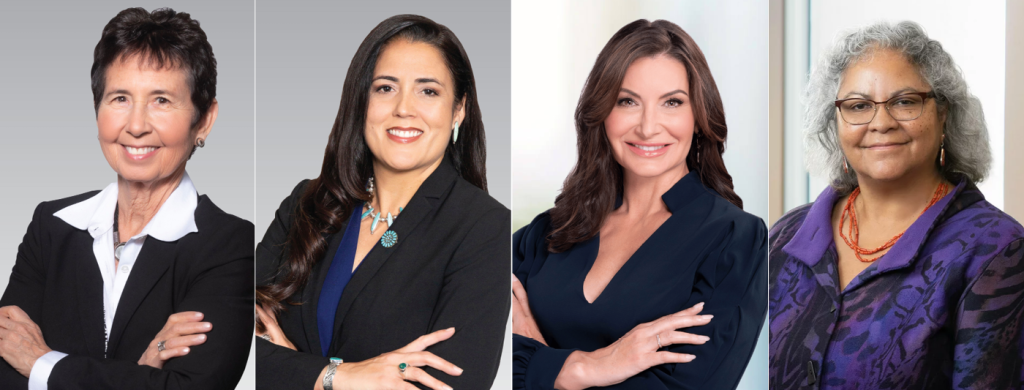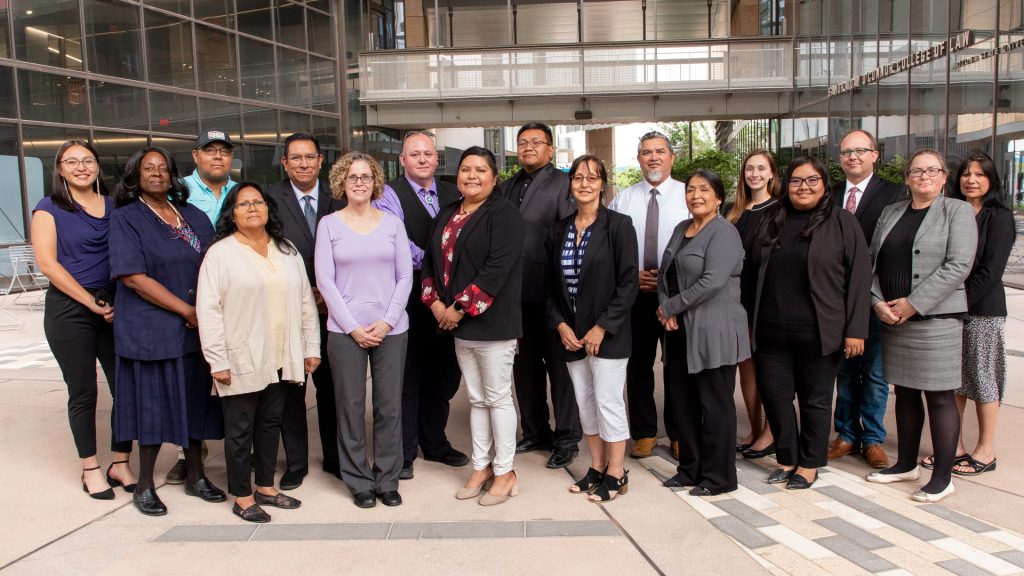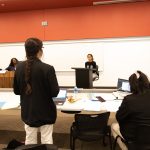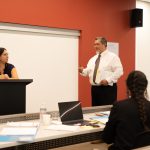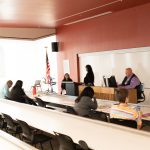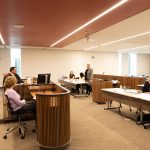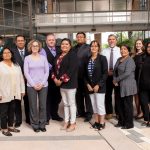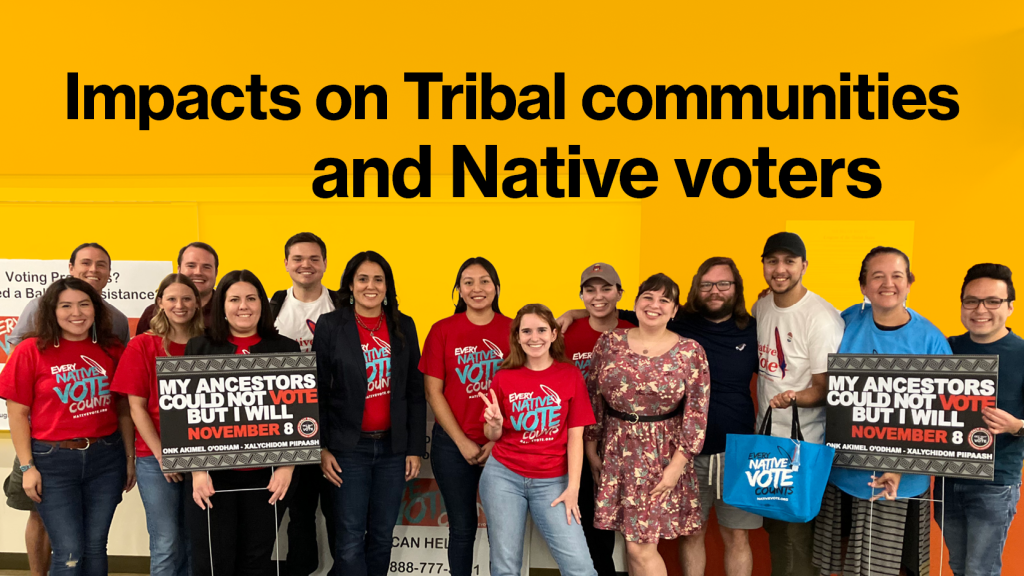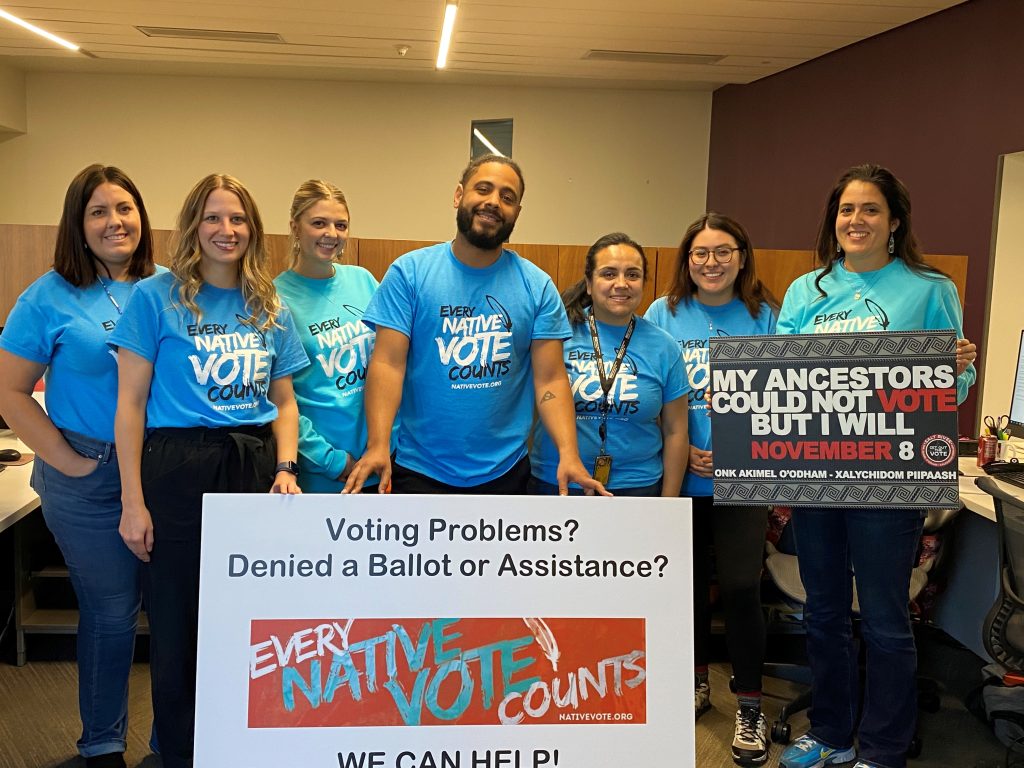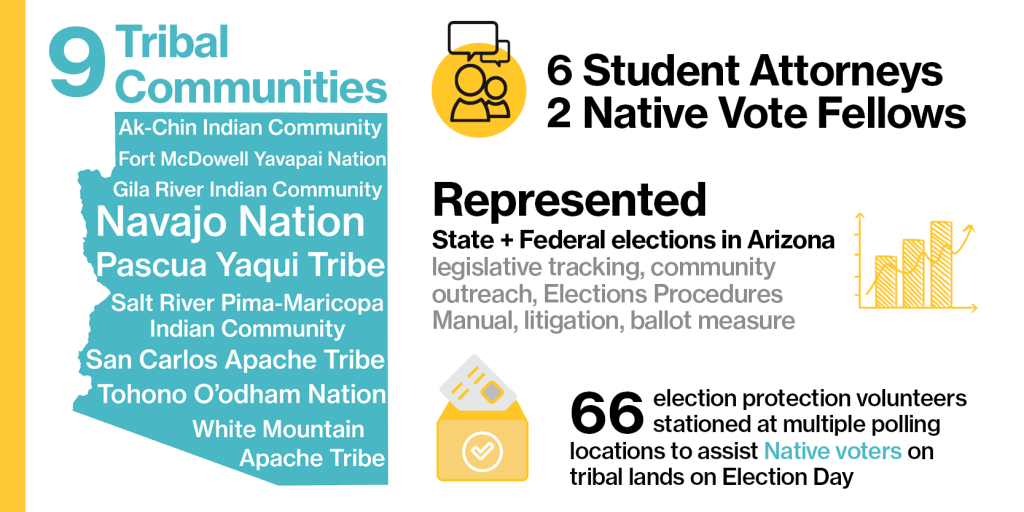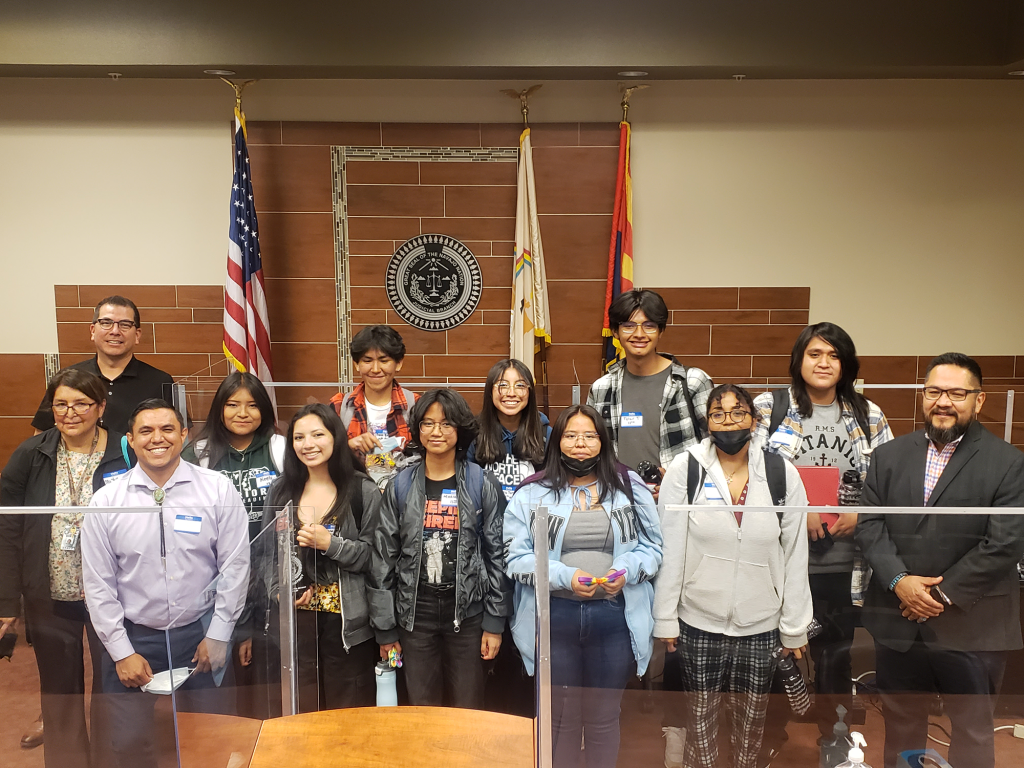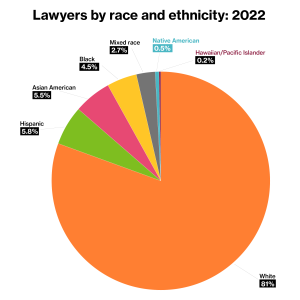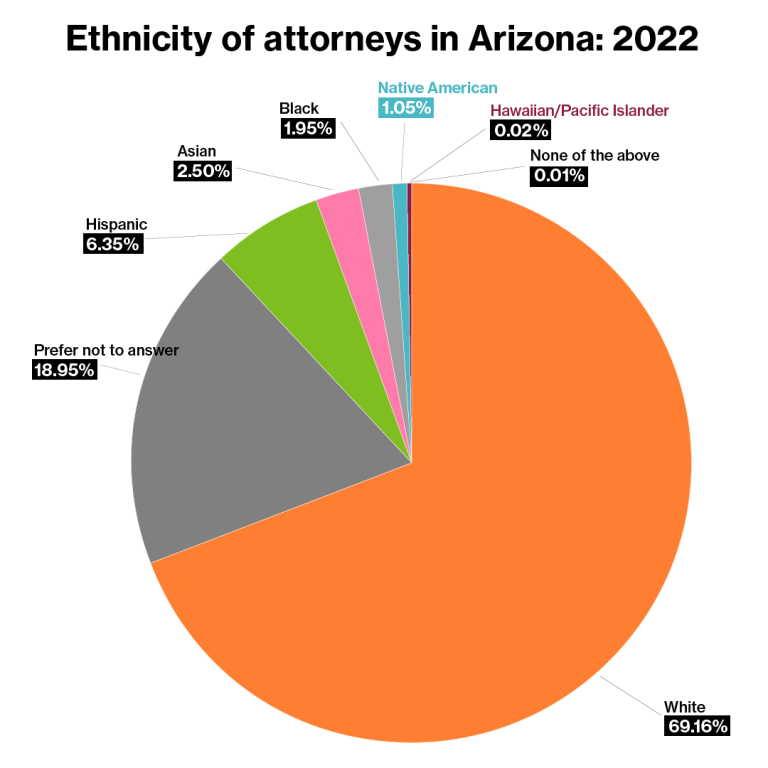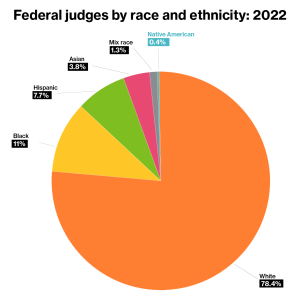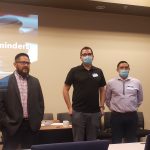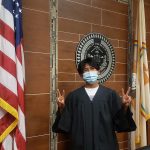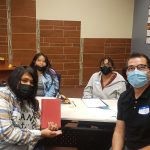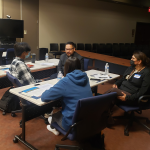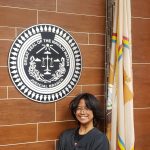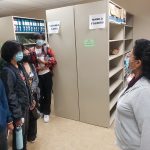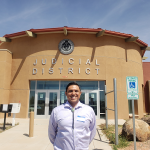This year, Arizona Native Vote Election Protect Project prepped for the 2024 Elections. ILC students worked on many different voting rights and election issues: ballot collection, election protection, voter access, tribal authority and collecting spatial data used in our polling locator tool.
During the ABA Annual Meeting, Indian Legal Clinic Director Patty Ferguson-Bohnee led a discussion Perfecting Democracy: Pro Bono Opportunities and the State of Native American Voting Rights to encourage lawyers to volunteer during the 2024 election cycle. Ferguson-Bohnee and the new ILC Democracy Director Joel Edman participated in the Native American Voting Rights Coalition meeting in Washington, D.C., where Ferguson-Bohnee presented on case updates. The Indian Legal Clinic Native Vote Election Protection Team also submitted comments to the Arizona Secretary of State regarding Tribal provisions in the Election Procedures Manual, which was mentioned in The Arizona Republic article “Arizona Elections Procedures Manual criticized by Dems, GOP.”
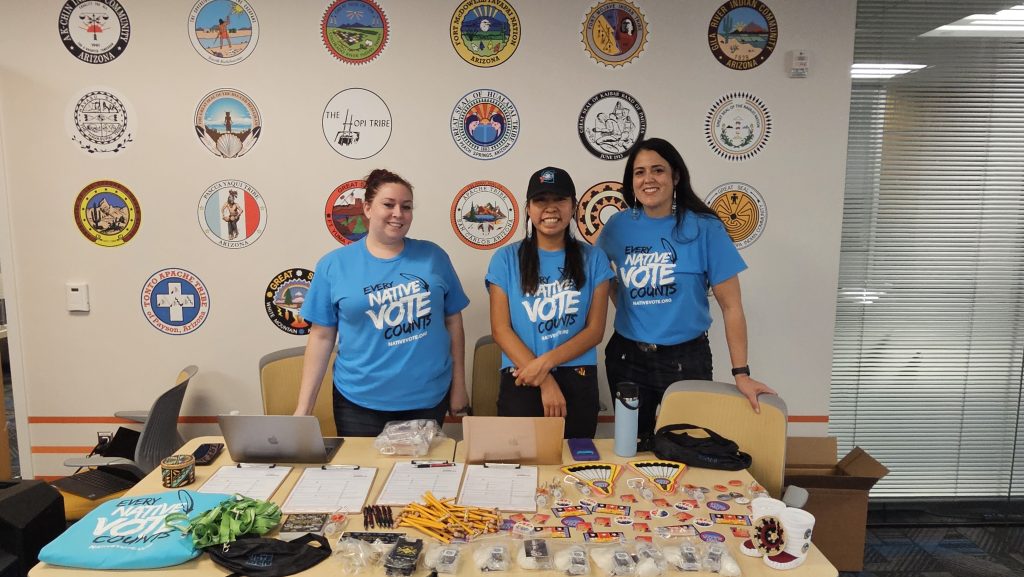
On Sept. 19, ILC student attorneys celebrated National Voter Registration Day providing voter registration services to the ASU community at both the law school and the downtown ASU American Indian Student Support Services office.
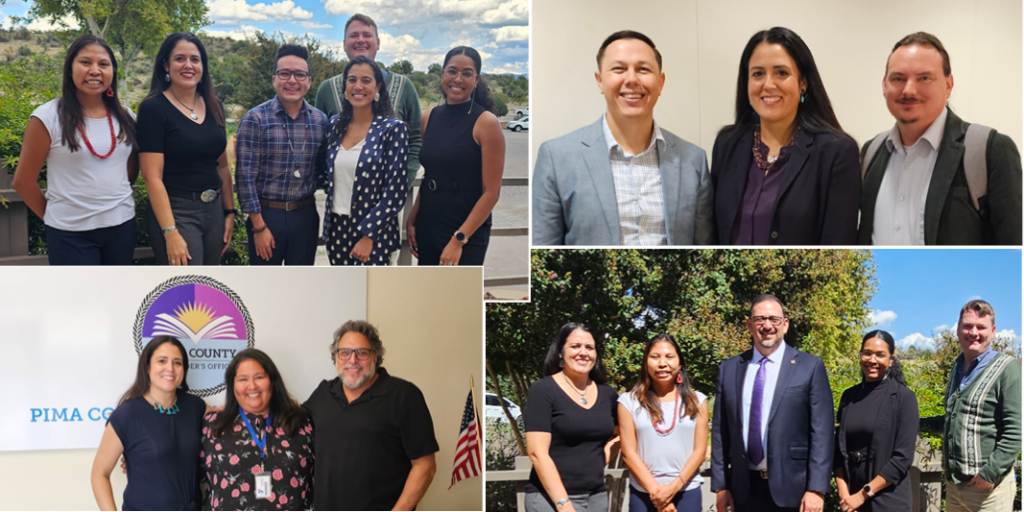
In October, the ILC co-sponsored a convening focused on partnerships between Tribes and County elections officials, many of whom are were in their roles going into 2024. Ferguson-Bohnee provided an overview of tribal voting statistics and barriers documented in recent elections by Arizona Native Vote. ILC student attorneys Maryam Gary Nez (3L), and Natalia Sells (3L) and Edman helped the facilitation team to keep notes during regional breakout sessions. Our Arizona Native Vote team met with Secretary of State Adrian Fontes, as well as Pima County Recorder Gabriella Cázares-Kelly, member of the Tohono O’Odham Nation, who shared her experiences as an elected official.
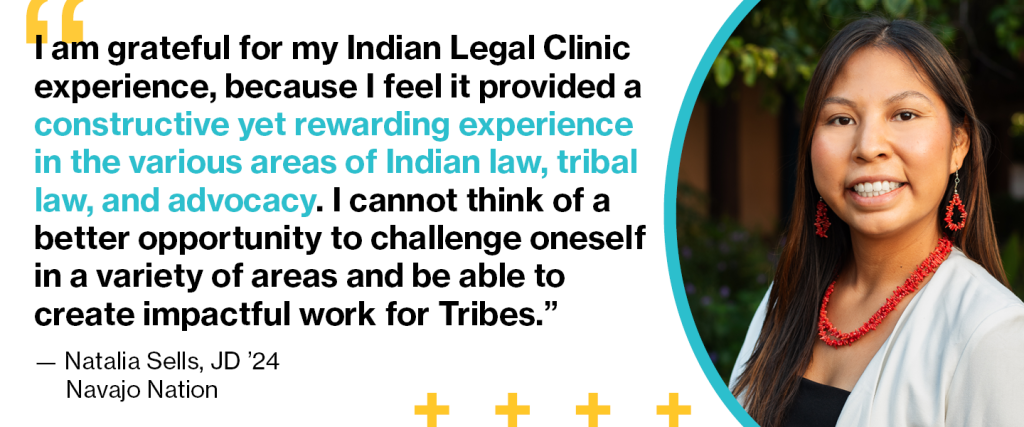
Governor Katie Hobbs approved a new Election Procedures Manual (EPM) on Dec. 29, 2023. The ILC provided analysis and recommendations to Tribal leaders throughout the EPM process. Successful advocacy from Tribal leadership led to new, robust EPM policies regarding Tribal consultation and language assistance, as well as guidance on poll worker training related to key issues impacting Native voters. At the January Native Vote Strategy Session, Ferguson-Bohnee updated Tribal leaders on the EPM and Edman gave a legislative update.
During Spring Break, the ILC welcomed Professor Marcy Karin from the University of the District of Columbia (UDC) School of Law, along with her law students to gain insights into the voting landscape within Indian Country in Arizona. Additionally, they contributed to updating voting data presentations tailored to specific tribes in the state.
For Presidential Preference Election Day, the Arizona Native Vote Election Protection Project set up its command center in the ASU Indian Legal Clinic. Ferguson-Bohnee, Edman and student attorneys Keely Driscoll (2L), Samir Grover (3L), Clayton Kinsey (3L), Natalia Sells (3L), Alexandra Trousdale (3L) and Chelsi Tsosie (3L) were joined by Project partners to assist Native voters.

Preparing for 2024 election
Native Vote is now gearing up for the July primary and November general elections. We continue to share legislative updates and present on other voting-related topics during monthly Native Vote Strategy Sessions.
Arizona Native Vote Election Protect Project is calling for volunteers for Election Day, November 5, 2024.

